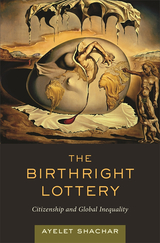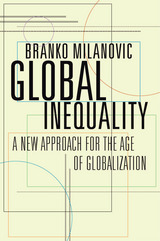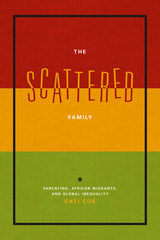
The vast majority of the global population acquires citizenship purely by accidental circumstances of birth. There is little doubt that securing membership status in a given state bequeaths to some a world filled with opportunity and condemns others to a life with little hope. Gaining privileges by such arbitrary criteria as one’s birthplace is discredited in virtually all fields of public life, yet birthright entitlements still dominate our laws when it comes to allotting membership in a state.
In The Birthright Lottery, Ayelet Shachar argues that birthright citizenship in an affluent society can be thought of as a form of property inheritance: that is, a valuable entitlement transmitted by law to a restricted group of recipients under conditions that perpetuate the transfer of this prerogative to their heirs. She deploys this fresh perspective to establish that nations need to expand their membership boundaries beyond outdated notions of blood-and-soil in sculpting the body politic. Located at the intersection of law, economics, and political philosophy, The Birthright Lottery further advocates redistributional obligations on those benefiting from the inheritance of membership, with the aim of ameliorating its most glaring opportunity inequalities.

Winner of the Bruno Kreisky Prize, Karl Renner Institut
A Financial Times Best Economics Book of the Year
An Economist Best Book of the Year
A Livemint Best Book of the Year
One of the world’s leading economists of inequality, Branko Milanovic presents a bold new account of the dynamics that drive inequality on a global scale. Drawing on vast data sets and cutting-edge research, he explains the benign and malign forces that make inequality rise and fall within and among nations. He also reveals who has been helped the most by globalization, who has been held back, and what policies might tilt the balance toward economic justice.
“The data [Milanovic] provides offer a clearer picture of great economic puzzles, and his bold theorizing chips away at tired economic orthodoxies.”
—The Economist
“Milanovic has written an outstanding book…Informative, wide-ranging, scholarly, imaginative and commendably brief. As you would expect from one of the world’s leading experts on this topic, Milanovic has added significantly to important recent works by Thomas Piketty, Anthony Atkinson and François Bourguignon…Ever-rising inequality looks a highly unlikely combination with any genuine democracy. It is to the credit of Milanovic’s book that it brings out these dangers so clearly, along with the important global successes of the past few decades.
—Martin Wolf, Financial Times

READERS
Browse our collection.
PUBLISHERS
See BiblioVault's publisher services.
STUDENT SERVICES
Files for college accessibility offices.
UChicago Accessibility Resources
home | accessibility | search | about | contact us
BiblioVault ® 2001 - 2024
The University of Chicago Press









